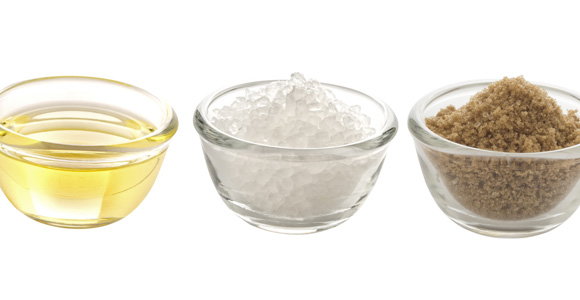Healthful diets are defined by a number of things, but three of the biggest contributors to unhealthy diets and chronic disease are added sugars, excessive fat, and sodium (salt).
Too much sugar and fat may result in weight gain, increased cholesterol levels, and aggravation of other health issues. Excess sodium can lead to fluid retention and high blood pressure-putting extra stress on the circulatory system and increasing the risk for heart disease, heart failure, stroke, kidney failure and other health problems.
Reducing the consumption of salt, sugar and fat may seem challenging for many, especially for older Americans or those with certain health conditions and/or medications who have a reduced sense of smell and taste. But the good news is that there is a solution that can suit virtually everyone: herbs and spices.
Flavor, Therapy and Prevention
Herbs and spices not only flavor foods without added calories, but according to various medical journals including Current Medicinal Chemistry, the Journal of Nutritional Biochemistry and Current Cardiology, they also contain compounds within them that can alleviate certain symptoms or prevent diseases. Garlic, basil, black cumin, cloves, cinnamon, thyme, allspices, ginger, bay leaves, mustard and rosemary all have medicinal and therapeutic properties.
Every Day Use
Using herbs and spices doesn't mean you have to make complicated meals, you can easily add them to everyday foods:
- Combine crushed garlic, basil, olive oil and lemon juice to create a homemade salad dressing.
- Add cilantro, chives, mint or basil to salads or sandwiches.
- Top oatmeal or toast with cinnamon or nutmeg.
- Mix parsley and chives into scrambled eggs.
- Sprinkle ground cloves on applesauce or in tea.
- Sauté spinach with garlic and lemon juice.
- Add ginger to sauces, marinades or in stir-fry dishes.
- Put oregano in salad dressings, marinara sauce, on top of pizza or in soups.
Selection, Storage and Strength
Growing your own herbs and spices is the best way to have the freshest selection on hand. However, if you have to purchase them elsewhere, look for plants that have a strong aroma and are healthy-free from insects and aren't wilted, moldy or slimy.
To extend the life of fresh cut herbs, wrap the stems in a wet paper towel and place them in a plastic bag in the refrigerator. You can also freeze them in broth in ice cube trays and store in a labeled freezer bag for several months. Be sure to wash and remove inedible parts first. You may also want to dry them yourself or make an infusion with olive oil or vinegar.
If purchasing dried herbs, check expiration dates and buy from a reputable source. If possible, buy them whole and then grind them yourself. Dried herbs will lose their potency after a while, so purchase quantities that you will use in six months or less.
Keep in mind, fresh herbs usually have a stronger aroma, but dried herbs deliver a more powerful flavor punch. If a recipe calls for dried herbs, you will typically need about three times more of the fresh and vice versa.

Mandy Seay is a bilingual registered and licensed dietitian who holds both a bachelor's degree in nutrition and in journalism. After gaining 30 pounds while living abroad, Mandy worked to lose the weight and regain her health. It was here that she discovered her passion for nutrition and went on to pursue a career as a dietitian. Mandy currently works as a nutrition consultant and freelance writer in Austin, Texas, where she specializes in diabetes, weight management and general and preventive nutrition. She recently published her first book, Your Best Health, a personalized program to losing weight and gaining a healthy lifestyle. Please visit Mandy's website at Nutritionistics.com.



